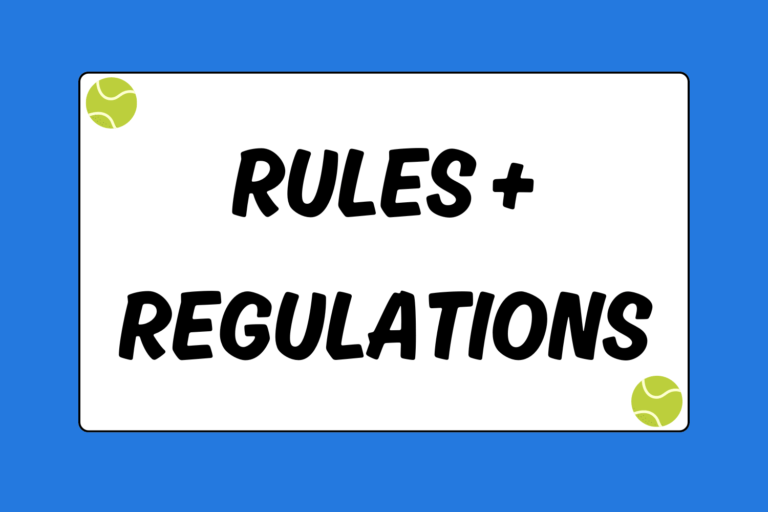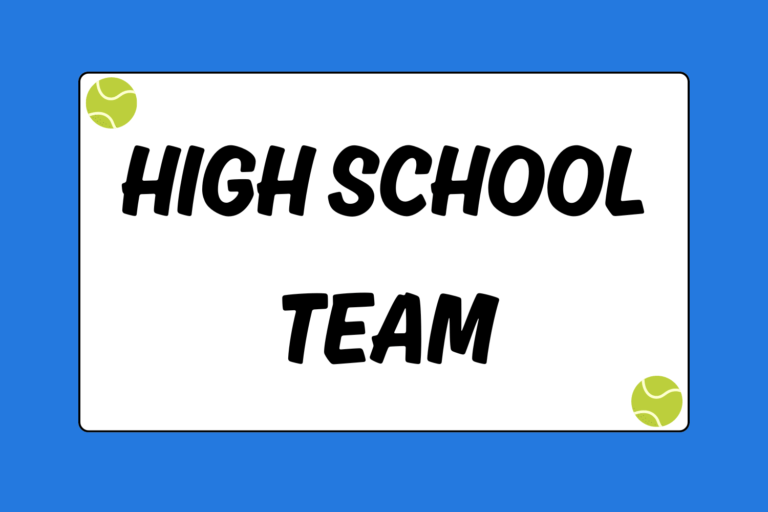Choosing the right doubles partner is like finding the perfect spouse. It could take years to find your ideal complement, and even when you think you’ve found your one-and-only, the partnership might end abruptly. But don’t worry — you don’t need to sign up for online matchmaking in order to find your next teammate. Choosing a doubles partner can be simple if you know what to look for.
Most recreational competitors play doubles, and it’s frustrating when you can’t find a player that’s equally as competitive or capable as yourself. This guide outlines the characteristics that you should look for in an ideal doubles partner.
Compatibility
One of the most important aspects of doubles is finding a partner whose style of play fits with your game. A powerful serve can provide the knockout punch you need in an intense doubles match, but two players that hit with pace may not mesh well as teammates. Two big hitters might be susceptible to unforced errors, and end up thumping their way to a loss. On the other hand, two consistent players might be at risk of being overpowered. Combining power and consistency generally creates a well-balanced and formidable team that can match-up against any opponent.
Additionally, it’s helpful to find a partner that complements your game. If you shy away from hitting backhands, choose a partner that prefers backhand groundstrokes and is willing to play on the backhand side of the court. You and your partner should figure out each others’ strengths and weaknesses, and adjust your approach accordingly.
Hot Tip: Build around the Weak Link
Some doubles teams prefer to mold their game around the superior player’s strong points. However, if one of the teammates is slightly better than his partner, try catering to the weaker player’s strengths. It’s more important that the weaker partner is put in a position where he’s comfortable and can succeed.
Attitude
Choosing a partner with a contrasting style of play can be beneficial, but opposite personalities don’t generally make the best teammates. Some players like to talk to their partners throughout a match, while other players remain quiet in order to focus. While you may survive a few matches with a partner whose personality clashes with yours, your team chemistry will most likely collapse over time.
You need to be willing to forgive your partner quickly, and accept any mistakes that you or your teammate may commit. You don’t need to be best friends on and off the court, but it’s important that you and your partner are similar in temperament and understand each other’s preferences.
Physique
While height and size help in tennis, it’s not a sport that necessitates brawny muscles or seven-foot tall Goliaths. That said, a partner that physically complements you can pay dividends. A taller, more powerful player might team up well with a speedster that can cover the court. A tall player will be able to cut off lob shots and high volleys, while his partner hustles for drop shots and difficult gets.
Two tall players might struggle to move around the court, or have difficulty handling balls that land around their feet. Two short teammates will be easy to lob when at the net, and might be overpowered. There isn’t a surefire way to match players based on their physical characteristics, but try to find a balance. Certain techniques and match-ups will prove to be useful, and you’ll discover what approach works best.
Handedness
You shouldn’t write off potential partners based on their dominant hand, but there are advantages to having a righty and lefty on the same team. You can ensure that both players will have forehands in the middle of the court if you put a right-handed player in the ad court and left-hander in the deuce court. Or you can guard the alleys and ensure that balls hit out wide stay on the forehand side if you put the righty in the deuce court and the lefty in the ad court. Different teams will employ different lines of attack, but having options is always helpful.
Constantly Work
Even if you find the perfect complementary player — one that hides your weaknesses or picks up your slack — never assure yourself that your game is flawless. It’s easy to become somewhat dependent on your partner to save you from certain shots, but it’s dangerous to become complacent. You should always try to improve your game and analyze your weaknesses. Eventually, your opponents will discover the holes in your game and exploit your limitations, so you need to focus on self-improvement.
Experiment
Finding the ideal teammate takes time, but by no means should you stop playing until you come across the perfect partner. Teaming up with a variety of players will help you discover what style of play works best with your game. Experiment with new doubles partners and constantly strive to improve.





